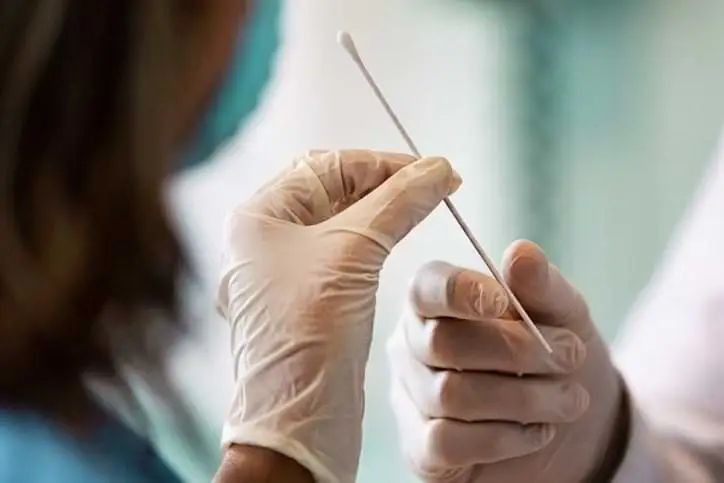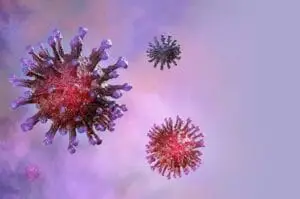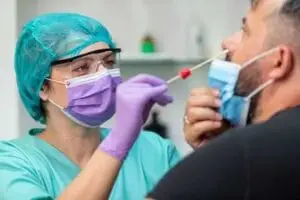There are different tests you can get to check if you have coronavirus (COVID-19). The test you need depends on why you’re getting tested.
The 2 main tests are:
- PCR tests – mainly for people with symptoms, they’re sent to a lab to be checked
- rapid lateral flow tests – only for people who do not have symptoms, they give a result in 30 minutes using a device similar to a pregnancy test
Both tests are free.
If you have symptoms of COVID-19
Get a PCR test as soon as possible if you have any of these symptoms:
- a high temperature
- a new, continuous cough
- a loss or change to your sense of smell or taste
You and anyone you live with should stay at home until you get your test result. Only leave your home to have a test.
Anyone in your childcare or support bubble should also stay at home if you have been in close contact with them since your symptoms started or during the 48 hours before they started.Get a PCR test if you have symptoms of COVID-19 on GOV.UK
Regular tests if you do not have symptoms
Anyone can now get regular rapid lateral flow tests without having symptoms.
About 1 in 3 people with COVID-19 do not have symptoms but can still infect others. You should do a rapid test twice a week (every 3 to 4 days) to check if you have the virus.
If people test positive and self-isolate, it helps stop the virus spreading.Get regular rapid COVID-19 tests if you do not have symptoms
Other reasons to get tested
Confirming a previous test result
Get a PCR test as soon as possible if:
- you’ve done a rapid lateral flow test and had a positive result or your test sample could not be read (void result)
- you had a PCR test and your test sample could not be read
If you have symptoms, stay at home until you get the result of the 2nd test.
If you’re self-isolating because you’ve been in close contact with someone who’s tested positive
If you’ve been in close contact with someone who’s tested positive for COVID-19 you can get a PCR test, whether or not you have symptoms.What does close contact mean?
Getting tested can tell you if you had COVID-19 at the time you did the test.
If you test positive, you can help the NHS contact people who may have caught the virus from you. They can then self-isolate and avoid passing it on to others.
You must continue to self-isolate for the 10 full days even if your result is negative, as you could still become infectious.
Going into hospital
You may need to get tested if you’re due to have surgery or a procedure.
The hospital will arrange this for you. Contact your hospital department if you have any questions.
Travelling abroad
If you’re travelling abroad, you may need to get a test before you travel. You need to pay for a test privately and should not get a free test from the NHS.



